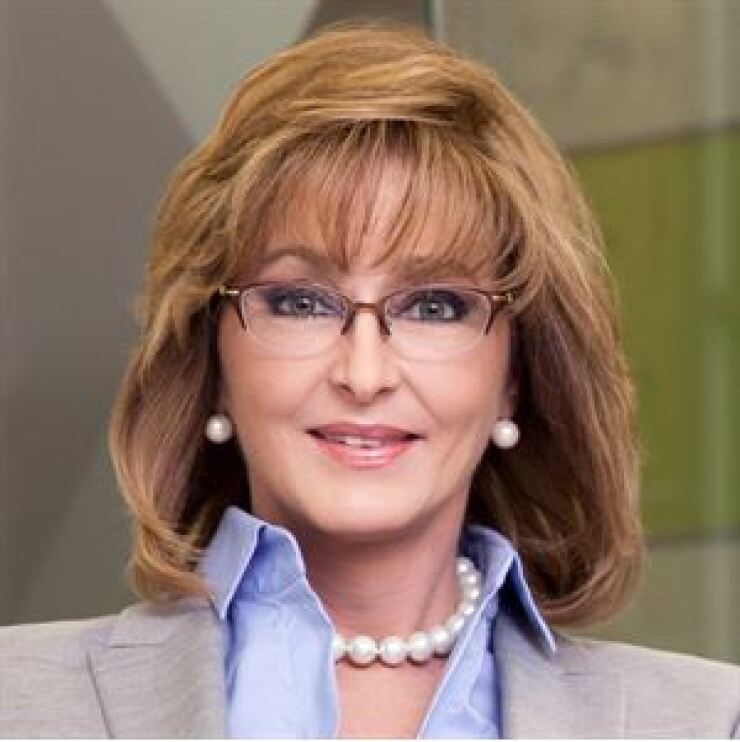You could say Crystal Long has climbed the entire corporate ladder.
At the age of 19, Long started out as a file clerk at GECU in El Paso, Texas, eventually working her way up to president and CEO of the $2.8 billion-asset institution.
During her career, Long has focused on financial literacy, lobbied for regulatory reform and strived to serve everyone in her community. For her work in the industry, Long is receiving the 2019 Herb Wegner Memorial Outstanding Individual Achievement Award from the National Credit Union Foundation. She is the third GECU president and CEO to receive the honor.
The foundation cited her embracing the “people helping people” philosophy of the credit union industry. She will be one of three Wegner Award winners honored on Monday during the Credit Union National Association’s Governmental Affairs Conference in Washington, D.C.
“This is an incredible honor and I couldn’t have done it without the support of the whole credit union and the wonderful employees who work here,” Long said. “I also could not have done it without my family who has supported me throughout my career.”
The following is an edited interview with Long.

CUJ: Your CU does a lot of financial literacy training. In the last year, we’ve started to see
Long: We have an online platform to serve our members with an easy and more convenient way to learn. This platform called “ImagineU” is a way our members or community can learn about financial literacy especially our younger generation who may not want to go into a branch or attend a seminar. We also continue to have traditional methods of reaching our community with financial literacy. We are involved in more than 60 schools, we offer face-to-face counseling and we also have seminars on different financial topics. We also partner with community organizations to identify and fill the need.
CUJ: What’s your biggest focus as you look to expand financial literacy offerings?
Long: Educating our youth is one of the primary places we are focusing on because they are the future of El Paso. It is important for them to get a head start on managing their money well which they can pass on to their family and friends. We also have a strong focus on financial literacy to people who want to learn how to save, manage a budget, get out of debt and who are dreaming of being home owners. We also focus on our seniors helping them prevent identity theft, avoid scams, and preparing for their future with services such as estate and retirement planning.
CUJ: Your credit union is located in El Paso, Texas. What unique challenges do you face as a credit union on the U.S.-Mexico border?
Long: The unique challenges we face are language barriers, which is part of being located in a border town. We have many bilingual employees who assist members who only speak Spanish so this helps with the language challenge. El Paso is a city full of rich culture with the best of Mexico and the United States and it is a unique experience we have living in a border town.
CUJ: Do you expect your CU or members to be impacted by the president’s push to build a barrier along the border? If so, how?
Long: Only time will tell if we are. We are constantly thinking of our members and how we can better serve them. We do have a wall in El Paso today and we’ve had that wall since about 2009. There are many people in our community who cross over daily.
CUJ: Hundreds of asylum seekers were released on the streets of El Paso last Christmas. Has your credit union assisted the undocumented community or DACA students?
Long: As a credit union we are here to help our community and those who are living here whether permanently or temporarily. We help on a case by case basis and we also assist through different outlets such as non-profit organizations (El Pasoans Fighting Hunger) that help people in these situations. We have several community partnerships which allow us to further help our community.
CUJ: The national conversation surrounding immigration has turned nastier in the last two years, yet a lot of credit unions say they’ve seen an increased need to serve legal and undocumented immigrants. Has that been the case for you? What do you think is behind the shift in the industry?
Long: As a non-partisan organization we believe in helping our community regardless of the controversial political debates on the border. As a credit union on the border we extend a helping hand to our neighbors putting into action the people helping people philosophy paving the way for financial freedom in our community and beyond. Again, we look at the different cases such as people who are applying for citizenship and we are able to see if we can serve them depending on their case.
CUJ: Credit unions have had a bit of a roller-coaster ride with the Consumer Financial Protection Bureau and you have certainly pushed for CUs to be exempted from CFPB rulemaking. What’s your impression of Kathy Kraninger so far?
Long: We hope that she will have the best interest for the American people and the financial industry. I think it’s early on in her time with the CFPB. … I think it’s a wait and see to see what she changes and we are hopeful that she will see areas and opportunities to carve out for credit unions instead of paint a broad brush [for] banks. We’d like to see a carve out because we don’t believe [credit unions and community banks] are part of the problem.





